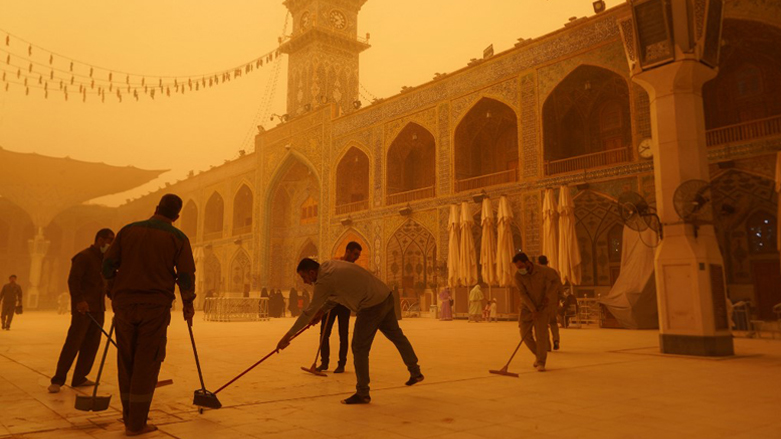Public offices across 8 Iraqi provinces closed due to dust storm

ERBIL (Kurdistan 24) – The dust storm that began blanketing Iraq on Monday has forced public officials to close down schools and government offices across eight provinces.
The governors of the provinces of Baghdad, Basra, Dhi Qar, Muthanna, Anbar, Babylon, Wasit, and Karbala have all announced the closures of public offices and schools, except health and security establishments, due to the thick dust storm, the state-run Iraqi News Agency reported.
The education officials have postponed exams across schools, universities, and colleges due to the extreme weather.
At least 4,000 cases of respiratory issues across the country have been recorded since the storm began, the Ministry of Health announced on Monday. Most of them were outpatients.
Flights have been grounded at the Sulaimani, Najaf, and Baghdad international airports on Monday for the same reason, aviation authorities announced.
Iraq has recently faced a number of these harsh storms that have caused breathing difficulties and some deaths and forced the closure of public offices and cancellation of flights in recent months.
Desertification, low precipitation, and decreased vegetation cover are a few factors that environmental authorities attribute to the increase in dusty weather. Climate change is also frequently cited as a driving force.
But not all agree that the recent storms are due to climate change.
"Climate change has become a very convenient excuse for officials to avoid responsibility for not taking action over the last 20 to 40 years," Azzam Alwash, the head of non-profit Nature Iraq, told AP in early May.
He said that the outdated improper agricultural practices and the rising salinity in the waters are a few "policy issues" that authorities have neglected.
The country's environmental authorities have warned that Iraq is at risk of facing 300 days of dust storms a year by 2050.
